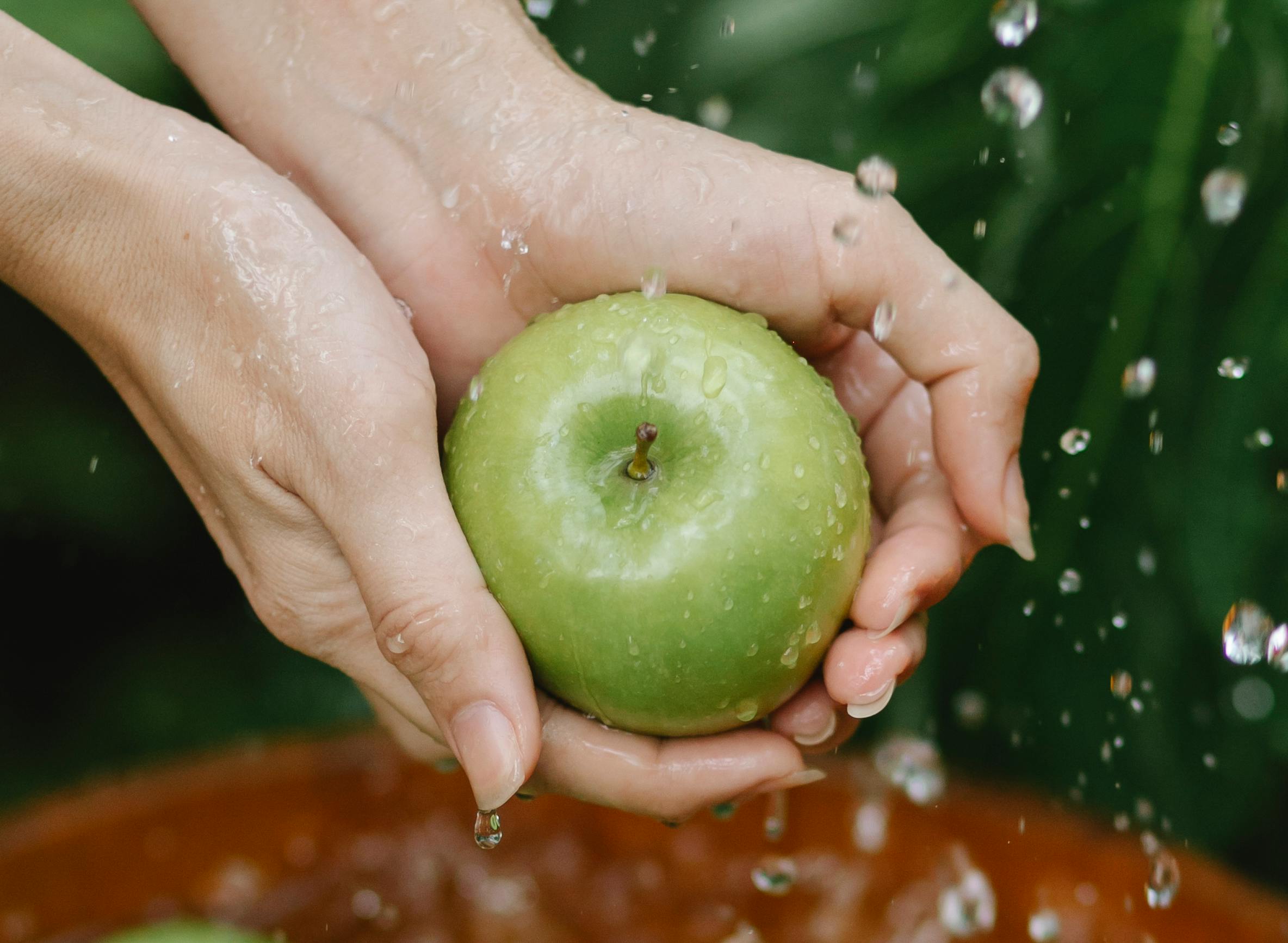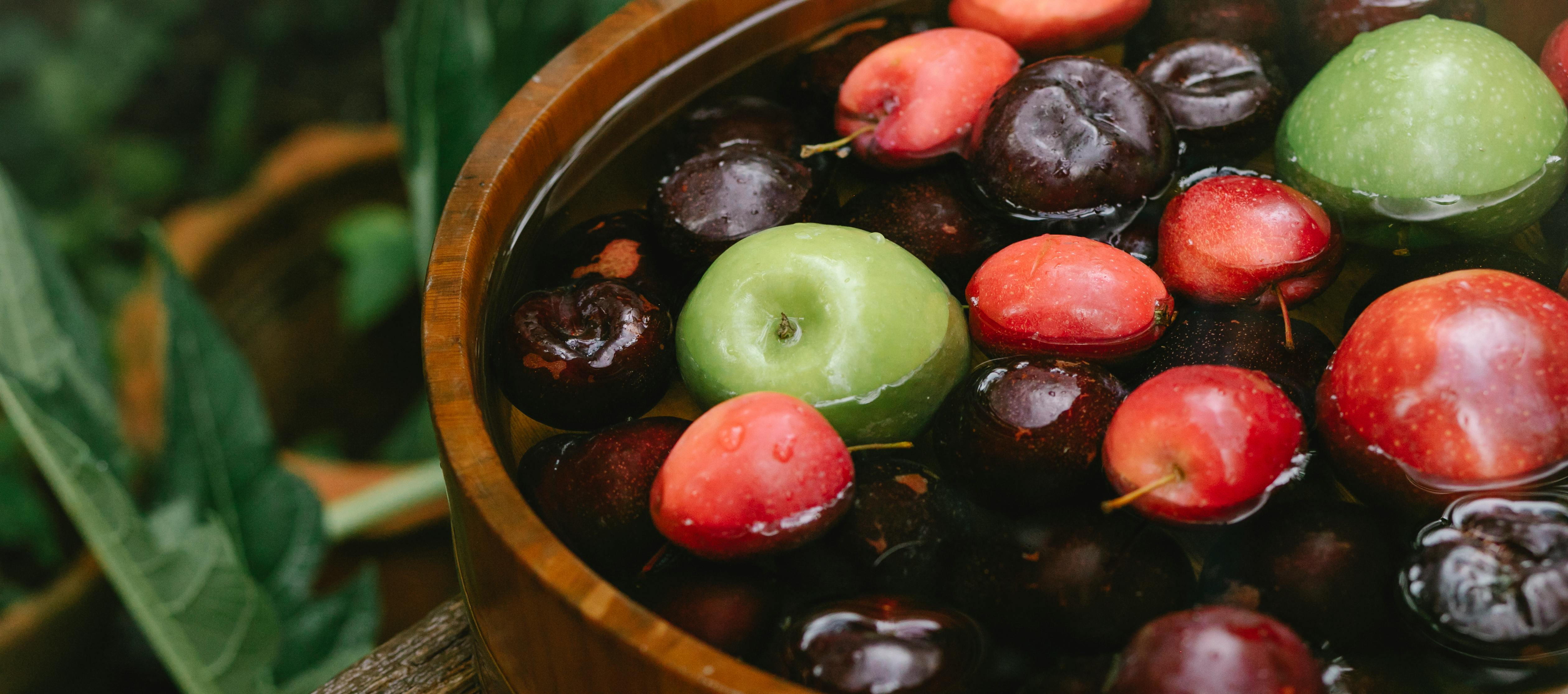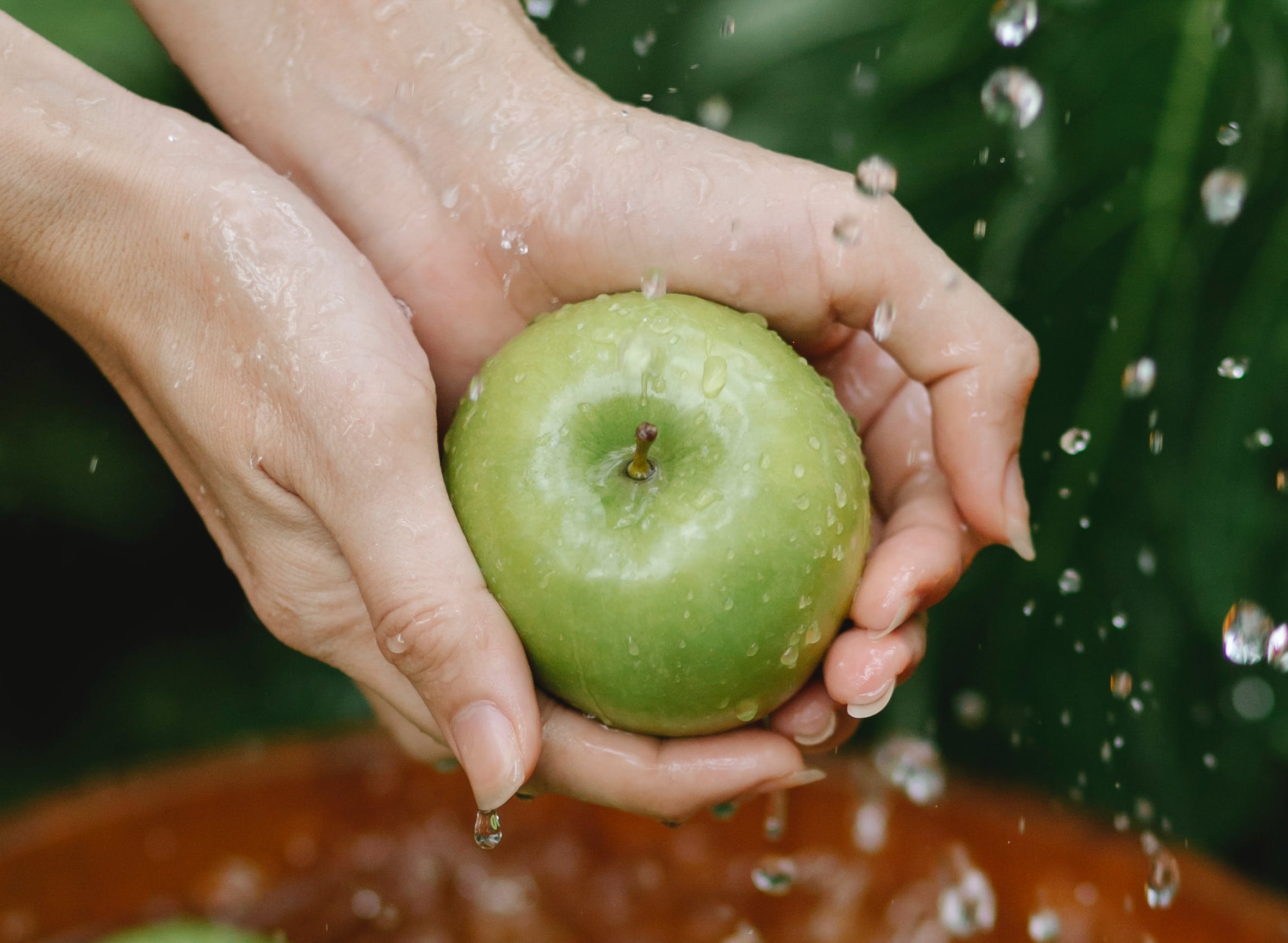Apple cider vinegar is a great natural cleaning agent that can be used to clean fruit. It is an effective and environmentally friendly way to remove dirt, bacteria, and other contaminants from the surface of your produce. Apple cider vinegar is also a natural disinfectant that can help reduce the risk of foodborne illnesses. In this article, we will discuss how to use apple cider vinegar to clean fruit safely and effectively.Yes, apple cider vinegar can be used to clean fruits. The acidity of the apple cider vinegar helps to remove bacteria, dirt, and wax from the surface of the fruit. To clean fruits with apple cider vinegar, mix 1 part vinegar with 3 parts water in a bowl. Soak the fruit in the solution for a few minutes and then rinse it off with cold water.
The Benefits of Cleaning Fruits with Apple Cider Vinegar
Apple cider vinegar has a long history of being used as an all-natural cleaner and disinfectant. It is a natural way to remove dirt, bacteria, and other contaminants from the surface of fruits and vegetables. Cleaning fruits with apple cider vinegar can help reduce the risk of contaminants that can cause food-borne illnesses. Here are some of the benefits of using apple cider vinegar to clean fruits:
1. It is an effective way to remove dirt, bacteria, and other contaminants from the surface of fruits and vegetables. Apple cider vinegar is naturally acidic, which makes it effective at killing harmful bacteria on the surfaces of fruits and vegetables. This can help reduce the risk of food-borne illnesses caused by contaminated produce.
2. It has antifungal properties that can help prevent mold growth on fruits and vegetables. The acidic nature of apple cider vinegar inhibits mold growth, which helps keep produce fresher for longer periods of time.
3. It helps to reduce pesticide residue on fruits and vegetables. Some conventional farming methods involve the use of chemical pesticides that can remain on produce even after it has been washed with water alone. By using an acidic solution such as apple cider vinegar, you can help remove any residual pesticide residue from the surface of your produce.
4. It is a natural deodorizer that can help eliminate unpleasant odors from your refrigerator or kitchen cupboards caused by spoiled produce or food spills. The acidic nature of apple cider vinegar helps neutralize odors in these areas, making them smell fresh again.
Cleaning your fruits and vegetables with apple cider vinegar is an easy way to ensure that you are consuming safe, healthy produce free from harmful contaminants or chemical residues. Not only does it help reduce risks associated with contamination and spoilage but it also provides many additional benefits such as eliminating unpleasant odors in your kitchen or refrigerator!
Types of Fruits Suitable for Cleaning with Apple Cider Vinegar
Apple cider vinegar is a popular choice for cleaning due to its natural antifungal and antibacterial properties. It can be used to clean a variety of surfaces, and it’s also safe to use on skin and hair. In addition to its cleaning powers, apple cider vinegar also has a unique flavor that can be used in recipes or as a topping for food. One of the best ways to get the full benefits of apple cider vinegar is by adding it to fruit-based cleansers.
Fruits like apples, lemons, oranges, limes, and grapefruits are all suitable for cleaning with apple cider vinegar. Apples have natural antibacterial properties that make them ideal for cleaning surfaces like countertops, sinks, ovens, and stovetops. Lemons are great for cutting through grease and other tough messes while orange peels can be used as natural scouring agents. Limes are excellent at removing odors from fabrics such as clothes or furniture upholstery. And finally, grapefruits contain citric acid which helps break down tough stains.
When using fruits for cleaning with apple cider vinegar, it’s important to make sure they’re fresh and ripe. Overripe fruits may not provide the same benefits as fresh ones since their enzymes have already begun breaking down naturally over time. You also want to make sure that you use organic fruits whenever possible since they contain fewer chemicals than non-organic ones.
To make your own fruit-based cleaner with apple cider vinegar, simply combine equal parts of the fruit juice with equal parts of the vinegar in a spray bottle or bucket depending on what you’re cleaning. You can also add essential oils such as lemon or tea tree oil if you want a pleasant scent when cleaning. Shake the bottle well before each use and spray or wipe on the surface you wish to clean. Allow it sit for several minutes before wiping away with a damp cloth or sponge .
By using fruits combined with apple cider vinegar, you can create your own natural cleaners that are both effective and safe to use around pets and children alike!

Apple Cider Vinegar as a Fruit Cleaner
Apple cider vinegar is an effective and natural cleaner for fruits. It has antiseptic, antibacterial, and antiviral properties which make it a great choice for cleaning fruits and vegetables. Apple cider vinegar is also acidic, which helps to kill any bacteria or mold that may be present on the surface of the fruit. Additionally, it can be used as a natural degreaser, helping to remove dirt and grease from fruits.
When using apple cider vinegar as a fruit cleaner, it is important to dilute it with water before use. This will help reduce irritation to the skin or eyes if any of the solution gets onto them. It is best to use one part apple cider vinegar and four parts water when cleaning fruits with this solution.
Using apple cider vinegar as a fruit cleaner can also help to remove wax from the surface of some fruits. Waxes are often used to keep fruits looking attractive and fresh in stores but can prevent them from ripening properly once you get them home. Applying apple cider vinegar diluted with water can help break down these waxes and allow the fruits to ripen naturally.
In addition to being used as a fruit cleaner, apple cider vinegar has many other uses in the kitchen. It can be used as a marinade for meats or vegetables, added to salad dressings or sauces for added flavor, or even used as an ingredient in baking recipes for cakes or breads.
Overall, apple cider vinegar makes an excellent choice for cleaning fruits and vegetables due its antiseptic and antibacterial properties. When using it as a fruit cleaner, be sure to dilute it with water first in order to reduce irritation that may occur if some of the solution gets onto your skin or eyes. Additionally, it can also be used in other ways in your kitchen such as marinades or baking ingredients for added flavor!
Common Misconceptions About Cleaning Fruits with Apple Cider Vinegar
One of the most common misconceptions about cleaning fruits with apple cider vinegar is that it will make them taste better. While it is true that apple cider vinegar can improve the flavor of certain fruits, it does not make them taste better. The only way to make fruits taste better is by adding other ingredients, such as sugar or spices.
Another misconception about cleaning fruits with apple cider vinegar is that it will kill off harmful bacteria or viruses. While apple cider vinegar does have some antibacterial and antiviral properties, it is not strong enough to kill all harmful bacteria or viruses. To be sure your fruits are safe to eat, you should always wash them thoroughly before eating.
A third misconception is that apple cider vinegar can help to preserve fruit for a longer period of time. While this may be true in some cases, it is not a reliable method for preserving fruit for an extended period of time. If you want to extend the shelf life of your fruit, you should look into using other methods such as refrigeration or freezing.
Finally, many people believe that cleaning fruits with apple cider vinegar will make them softer and juicier. While this may be true in some cases, there is no guarantee that this will happen every time you use apple cider vinegar to clean your fruits. The best way to ensure soft and juicy fruit is to choose ripe fruit and store it properly.
Advantages of Cleaning Fruits with Apple Cider Vinegar
Apple cider vinegar has been used for centuries to clean fruit and vegetables. It is a natural, inexpensive and safe way to remove dirt, bacteria and wax buildup from the surface of fruits and vegetables. Apple cider vinegar is also known for its anti-fungal, anti-bacterial and anti-viral properties which can help to kill any germs or bacteria on the surface of fruits and vegetables.
Another advantage of using apple cider vinegar is that it helps to retain the natural flavor and nutrition of the fruits and vegetables. It helps to remove wax buildup from the surface, which can reduce the level of pesticides or other chemicals that may be present on fruits and vegetables. Apple cider vinegar also helps to retain the color of fruits and vegetables by preventing browning or discoloration.
Disadvantages of Cleaning Fruits with Apple Cider Vinegar
The main disadvantage of using apple cider vinegar for cleaning fruits and vegetables is that it can have a strong smell if not used properly. The acidity in apple cider vinegar can also damage some types of produce if left on too long, so it is important to follow instructions carefully when using this method.
In addition, some people may be sensitive or allergic to apple cider vinegar, so those with sensitive skin should take extra precautions when using this method to clean their produce. Finally, apple cider vinegar is not recommended for cleaning soft fruits such as strawberries or raspberries since it can cause them to become mushy.




